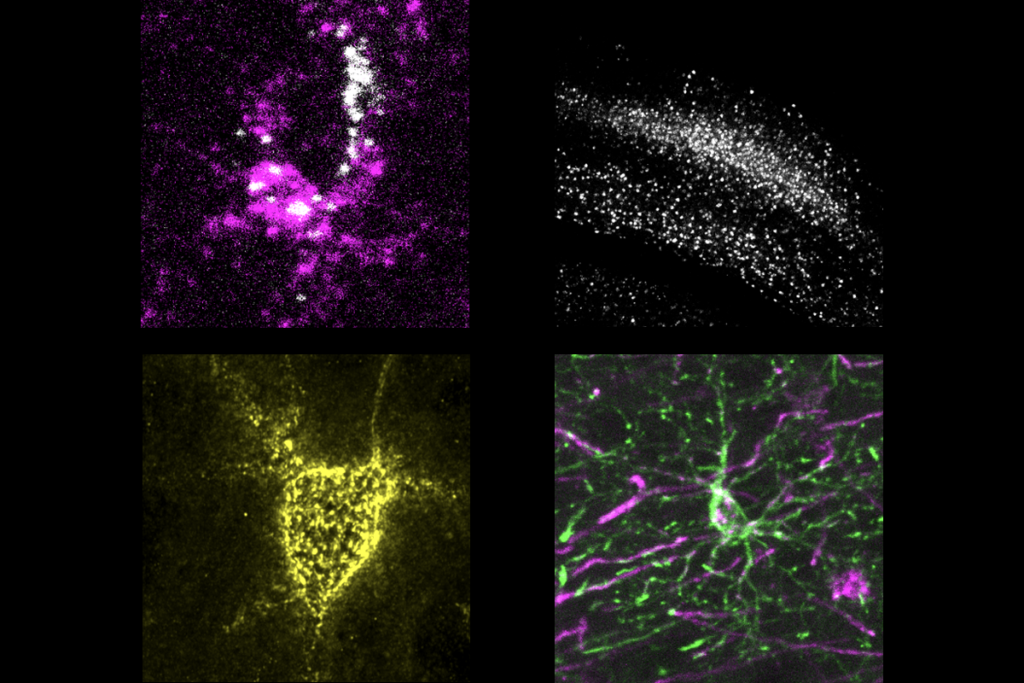Hi there, and welcome to the Spectrum community newsletter! I’m your host, Chelsey B. Coombs, Spectrum’s engagement editor. We used this week to recover from SfN Global Connectome, but that doesn’t mean everyone else stopped posting. Let’s jump in.
Our first post of the week comes from Desi R. Jones, a graduate student at the University of Texas at Dallas, whose thesis published in Autism, “Effects of autism acceptance training on explicit and implicit biases toward autism,” generated a lot of buzz on Twitter this week.
???? My thesis was published in @journalautism today! ???? https://t.co/MQBICtINIJ
We wanted to see if an intervention targeting autism knowledge and familiarity in non-autistic (NA) adults could reduce implicit and explicit biases towards autism. 1/15
— Desi Jones (@DesiRJones) January 21, 2021
In the thread, Jones explains her study, which evaluated the use of training videos about autism to reduce bias in non-autistic people. That idea came from studies that show how increasing people’s knowledge about marginalized groups can decrease racial bias.
So, how do we decrease stigma? Research on race suggests that improving knowledge and familiarity with marginalized groups can help to reduce racial biases. 3/15
— Desi Jones (@DesiRJones) January 21, 2021
Here’s what Jones and her colleagues found:
We found that the autism training was associated with more accurate autism knowledge, increased desire to interact with autistic people, and better perceptions of autistic abilities compared to the mental health training and control conditions. 10/15
— Desi Jones (@DesiRJones) January 21, 2021
However, implicit biases towards autism persisted regardless of training, with NA people associating autism labels with negative attributes. 11/15
— Desi Jones (@DesiRJones) January 21, 2021
James Cusack, chief executive of Autistica, an autism research charity based in the United Kingdom, called the study “excellent” and “much needed.”
However, implicit biases towards autism persisted regardless of training, with NA people associating autism labels with negative attributes. 11/15
— Desi Jones (@DesiRJones) January 21, 2021
Sara Luterman, a freelance writer whose work has been featured in Spectrum, called it “fascinating.”
Fascinating study about autism and implicit bias. Thread. https://t.co/wiTUHMxb3T
— Sara Luterman (@slooterman) January 21, 2021
And Tim Vogus, professor of management at Vanderbilt University in Nashville, Tennessee, who studies autism in the workplace, said that the research had “lots important implications for making workplaces more inclusive of neurodiversity.”
Jones was also featured in our podcast about the experiences of Black women in neuroscience.
Our next featured post this week includes another study from Autism: “Short report: Autistic parents’ views and experiences of talking about autism with their autistic children,” from researchers Laura Crane, Jade Davies and Liz Pellicano.
New #openaccess paper in @journalautism, co-authored with @jaderdavies and @liz_pellicano: Autistic parents’ views and experiences of talking about autism with their autistic children https://t.co/3kak2ta3GI
— Laura Crane (@LauraMayCrane) January 5, 2021
The researchers found that autistic parents “reported feeling well equipped to support their [autistic] children using their own knowledge and lived experience.” There were also few differences between how autistic and non-autistic parents spoke to their autistic children. The autistic parents said sharing their own experiences with autism increased empathy and understanding in their children. The autistic parents also “tended not to express concerns about disclosure potentially having a negative impact.”
Megan Freeth, director of the Autism Research Lab at the University of Sheffield in the U.K., said the research included “some important messages.”
New study on improving understanding of autistic parenting – some important messages here! https://t.co/nWo1h4oZZ4
— ShARL (@ShefAutismRes) January 5, 2021
Lily Levy, a child and adolescent mental health services clinician in the U.K., said she would be “sharing [this study] with autistic parents I work with after their children get a diagnosis.”
I LOVE IIIT! Definitely one that I’ll be holding in mind/sharing with autistic parents I work with after their children get a diagnosis. Thank you so much Laura, Jade and Liz!
— Lily Levy #BLM (@lilyhannahlevy) January 10, 2021
Nancy da Silva, a trainee clinical psychologist in the U.K., echoed Levy’s sentiment.
This is infinitely useful research! Will definitely be sharing this with the families I work with. https://t.co/0np2AjN6B4
— Nancy (@nancydasilva12) January 19, 2021
Our final post of the week comes from Michelle Dawson, an autism researcher at Hôpital Rivière-des-Prairies in Montreal, Canada. Dawson tweeted about a study from the Journal of the American Academy of Child & Adolescent Psychiatry called “Comparison of motor vehicle crashes, traffic violations, and license suspensions between autistic and non-autistic adolescent and young adult drivers.”
Although previous studies have suggested that autistic people may be at a heightened risk for motor vehicle crashes, this research found that “newly licensed autistic adolescent drivers have similar to lower estimated rates of adverse driving outcomes.”
Compared with nonautistic drivers, autistic drivers “have similar to lower crash rates” https://t.co/RBuL1Y1Iyr also a 45% lower rate of moving violations, and an 83% lower rate of license suspensions
— Michelle Dawson (@autismcrisis) January 14, 2021
That result could have policy impacts around the world, as Vrije Universiteit Amsterdam autism research associate Mitzi Waltz’s tweet suggests.
And despite this, here in the Netherlands autistic drivers are forced to go through a special course, at their own expense, to be allowed to drive – which is one reason many adults who think they may be autistic do not seek diagnosis.
— Mitzi Waltz (@mitziwaltz) January 14, 2021
Others tweeted that it might influence the U.K.’s Driver and Vehicle Licensing Agency’s policy that, according to the agency’s website, requires autistic people to report whether their diagnosis affects their ability to drive safely. Failure to disclose that information can lead to fines of up to 1,000 pounds and even prosecution if an autistic driver is involved in an accident.
Remember when the UK DVLA stated that autistic people needed to inform them of their diagnosis, forcing some of us to unwillingly out outselves a couple of years ago? Time for an apology perhaps. Also reduced insurance premiums? https://t.co/UWpepUNNqH
— Mother of autists (@JoTheSpinner) January 14, 2021
Take that @DVLAgovuk ! https://t.co/Al3WyhEQFj
— Dr Nancy Doyle (@NancyDoylePsych) January 14, 2021
That’s it for this week’s Spectrum community newsletter! If you have any suggestions for interesting social posts you saw in the autism research sphere this week, feel free to send an email to me at [email protected]. See you next week!




